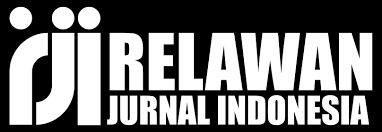The Role of Amil Zakat Institution in the Economic Welfare of the Ummah
DOI:
https://doi.org/10.61722/jiem.v1i4.335Abstract
Islam has its own way of paying attention to and overcoming poverty. So that the poor and the poor can be relieved of their burden and can be free from poverty. Islam has its own concept to alleviate poverty and build social rules using the concept of mutual assistance. This concept is in the form of giving zakat, infaq, and alms. This study aims to determine the role of amil zakat institutions in the economic welfare of the people, factors that influence the role of amil zakat institutions in the economic welfare of the people, and the management and allocation of zakat funds in influencing the people's economy. The method used in this research is a library approach that comes from books, scientific journals, and relevant websites according to the topic and focus of the research. This type of research uses a qualitative research approach. Results and discussion that LAZ programs and activities have an important role in the economic welfare of the people. There are two categories of LAZ's role in improving the welfare of Muslims, namely the fulfillment of mustahik's basic needs and mustahik's economic empowerment. Fulfillment of mustahik's basic needs such as basic food assistance, food and clothing, education, and health assistance. Mustahik's economic empowerment such as skills training, business capital assistance, and business assistance programs.
References
Abbas, A. S. (2017). Zakat: Ketentuan dan Pengelolaannya. Bogor: CV. Anugrah Berkah Sentosa.
Abror, K. (2019). Fiqh Zakat dan Wakaf. Bandar Lampung: Percetakan Permata.
Abdullah, A. (2017). Strategi Pendayagunaan Zakat Produktif: Studi BAZ Kabupaten Sukabumi Jawa Barat. Al-Mashlahah Jurnal Hukum Islam Dan Pranata Sosial, 1(1), 1–13. https://doi.org/http://dx.doi.org/10.30868/am.v1i01.105
Afrina, D. (2020). Manajemen Zakat Di Indonesia Sebagai Pemberdayaan Ekonomi Umat. EkBis: Jurnal Ekonomi Dan Bisnis, 2(2), 201. https://doi.org/10.14421/ekbis.2018.2.2.1136
Aini, Q. (2021). ZAKAT MELALUI BADAN AMIL ZAKAT NASIONAL ( BAZNAS ) KOTA MALANG ( Studi Pada Masyarakat Kecamatan Blimbing Kota Malang ). Jurnal Ilmiah.
Assa'diyah , H., & Pramono, S. (2019). Kenapa Muzakki Percaya Kepada Lembaga Amil Zakat? Jurnal Akuntansi dan Keuangan Islam, 2(1), 82.
Barkah, Q., Azwari, P. C., Saprida, & Umari, Z. F. (2020). FIKIH ZAKAT, SEDEKAH, DAN WAKAF. Jakarta: Prenadamedia Group.
Fathony, A. (2018). OPTIMALISASI PERAN DAN FUNGSI LEMBAGA AMIL ZAKAT DALAM MENJALANKAN FUNGSI SOSIAL. Journal Hakam, 02(01), 1–32.
Fitri, M. (2017). Pengelolaan Zakat Produktif sebagai Instrumen Peningkatan Kesejahteraan Umat. Economica: Jurnal Ekonomi Islam, 8(1), 149–173. https://doi.org/10.21580/economica.2017.8.1.1830
Haidir, M. S. (2019). Revitalisasi Pendistribusian Zakat Produktif Sebagai Upaya Pengentasan Kemiskinan di Era Modern. Muqtasid: Jurnal Ekonomi Dan Perbankan Syariah, 10(1), 57. https://doi.org/10.18326/muqtasid.v10i1.57-68
Hasanah, N. (2021). Analisis Pendistribusian Zakat Sebagai Upaya Pemberdayaan Mustahik Pada Baznas Gresik. Jurnal Qiema (Qomaruddin Islamic Economics Magazine), 7(1), 1–32. http://ejournal.kopertais4.or.id/pantura/index.php/qiema/article/view/3586
Holil. (2019). Lembaga Zakat dan Peranannya dalam Ekuitas Ekonomi Sosial dan Distribusi. Jurnal Ekonomi Islam, 10(1), 14-19.
Laela, S. F. (2010). Analisis Faktor-Faktor yang Mempengaruhi Kinerja Organisasi Pengelolaan Zakat. Jurnal Manajemen Dan Bisnis, 5(2), 126–146.
Manurung, F. E., & Harahap, M. I. (2022). Peran Baznas dalam Mensejahterakan Ekonomi Masyarakat Kota Medan. Jurnal Ilmu Komputer, Ekonomi Dan Manajemen (JIKEM), 2(1), 1365–1371.
Mulyawisdawati, R. A., & Nugrahani, I. R. (2019). Peran Zakat Produktif dalam Pemberdayaan Ekonomi Mustahiq (Studi Kasus Lembaga Amil Zakat Dompet Dhuafa Republika Yogyakarta 2017). JESI (Jurnal Ekonomi Syariah Indonesia), 9(1), 30. https://doi.org/10.21927/jesi.2019.9(1).30-41
Pandini, L. K. (2023). Peran LAZ DASI ITB dalam Pendistribusian Zakat untuk Mustahik. Jurnal Al-Qardhu, 1(2), 67.
Rais, I. (2009). Muzakki dan Kriterianya Dalam Tinjauan Fikih Zakat. Al-Iqtishad: Jurnal Ilmu Ekonomi Syariah, 1(1). https://doi.org/10.15408/aiq.v1i1.2456
Ramadhanti, F., & Riyadi, H. F. (2020). Peran Lembaga Amil Zakat dalam Meningkatkan Kesejahteraan Keluarga Janda Miskin Melalui Program Kampung Mandiri di Laznas Yatim Mandiri Kudus. Management of Zakat and Waqf Journal (MAZAWA), 2(1), 62–77. https://doi.org/10.15642/mzw.2020.2.1.62-77
Ramadhita, R. (2012). Optimalisasi Peran Lembaga Amil Zakat Dalam Kehidupan Sosial. Jurisdictie, 24–34. https://doi.org/10.18860/j.v0i0.2182
Sartika, M. (2008). Pengaruh Pendayagunaan Zakat Produktif terhadap Pemberdayaan Mustahiq pada LAZ Yayasan Solo Peduli Surakarta. Jurnal Ekonomi Islam, 2(1), 77.
Suryani, D., & Fitriani, L. (2022). Fungsi Zakat dalam Mengatasi Kemiskinan. Al-Iqtishad: Journal of Islamic Economics, 10(1), 62. https://jurnal.stai-alazharmenganti.ac.id/index.php/AlIqtishod/article/view/307/176
Triyawan, A. (2018). Analisis faktor-faktor yang mempengaruhi muzakki membayar zakat di BAZNAS Yogyakarta [Analysis of the factors that influence muzakki to pay zakat at BAZNAS Yogyakarta]. Islamic Economics Journal, 2(1), 58.
Wadjdy, F., & Mursyid. (2007). WAKAF DAN KESEJAHTERAAN UMAT. Yogyakarta: Pustaka Belajar.
Downloads
Published
Issue
Section
License
Copyright (c) 2023 JURNAL ILMIAH EKONOMI DAN MANAJEMEN

This work is licensed under a Creative Commons Attribution-ShareAlike 4.0 International License.












